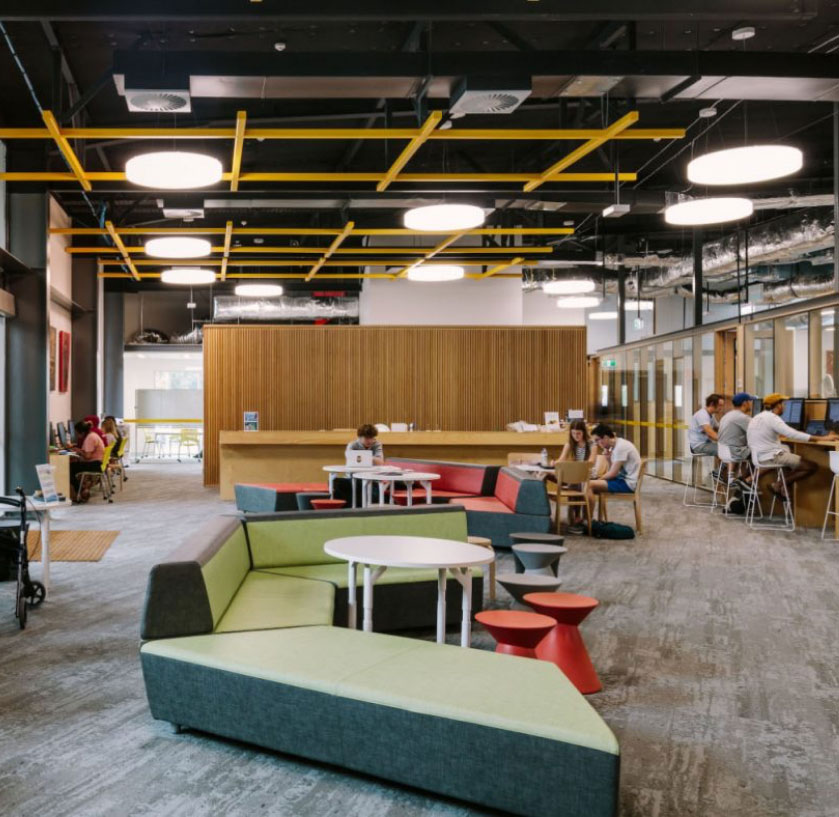March 9, 2022
IRU sets out higher education policy agenda for the next government
The Innovative Research Universities (IRU) is calling on the winner of the 2022 federal election to leverage education and research as part of a new phase in Australia’s social and economic development.
The IRU has released a pre-election policy statement that outlines eleven specific policy ideas it wants to see adopted by the next government, which would broaden access to higher education, support basic research, and strengthen engagement with our region. These recommendations address the social, economic, technological and geopolitical shifts currently faced by Australia that will continue to shape our national and global future.
IRU Executive Director Paul Harris said he is looking forward to working collaboratively and constructively with government on major policy challenges facing the nation.
“Universities have a crucial role to play for the next phase in Australia’s social and economic development,” he said. “Inclusive higher education and innovative research policies can help the nation move forward beyond the post-COVID recovery to a future that benefits all Australians.”
Mr Harris said the recommendations target key areas that are at the heart of the IRU’s work.
“The history of our member universities goes back to an era of bipartisan support for expanding access to higher education and new models of research to meet the needs of the nation,” he said. “We have unfinished business when it comes to participation and equity in higher education and maximising the impact from research for the community.”
Over the next five years, Australia will experience the demographic impacts of the baby boom of the early 2000s, leading to a significant increase in the number of young Australians moving from school to further study, training and work.
“We also need recognise and support the importance of basic research that is critical for generating new knowledge and long-term prosperity, alongside translational and commercial research.”
IRU Chair Professor Carolyn Evans said strengthening international engagement will also play an important role in Australia’s future and the next government should help universities foster and grow those relationships.
“Many of our members have a commitment to establishing close relationships with our neighbours in the Indo-Pacific region,” she said. “It’s important that we can leverage education and research to build more strategic partnerships, with the support of the Australian Government.”
The IRU recognises the 2022 election as a unique opportunity to re-set policy post-COVID for a new phase in Australian higher education and research.
The recommendations are:
- Government should fund additional places for domestic undergraduate students to keep up with demographic growth and the skills needs of the post-COVID economy.
- Funding for all Indigenous students should be uncapped, regardless of where they live, to contribute to the achievement of Closing the Gap goals.
- A comprehensive review of the Job-Ready Graduates (JRG) package should be undertaken, to ensure that current policies are not adversely affecting student choice, participation and equity, and not preventing universities from effectively contributing to other government priorities.
- The new government should bring together the various reforms of the Australian Qualifications Framework (AQF) into a coherent whole, to provide certainty for universities to innovate and deliver new credentials, including those in partnership with industry.
- The new government should reverse the decline in funding for basic research, with a systematic and sustainable long-term plan to support all disciplines.
- Government should commit to an Australian version of the UK’s Haldane Principle, which legislates that funding decisions about basic research projects should be protected from political interference.
- The focus on commercialisation and industry should be broadened to incentivise engagement and translation by universities in all sectors and disciplines, to maximise the impacts deriving from public investments in research right across Australian society.
- The new government should work collaboratively with universities on a detailed plan for implementing new models of high-quality, diversified international education post-COVID.
- Government should build upon the successful collaborative approach of the University Foreign Interference Taskforce to develop a coordinated, positive agenda for the role of education and research in strengthening diplomatic and strategic partnerships across the Indo-Pacific.
- The new government should create an Innovation and Infrastructure Fund to support universities to develop proposals for new physical and digital infrastructure, to use new technologies and drive new approaches in both domestic and international education. This would turn the experience of the COVID-19 pandemic into a positive inflection point for the next generation.
- Universities and the new government should work in partnership to review and remove red tape, and free up as much room as possible for innovation.







